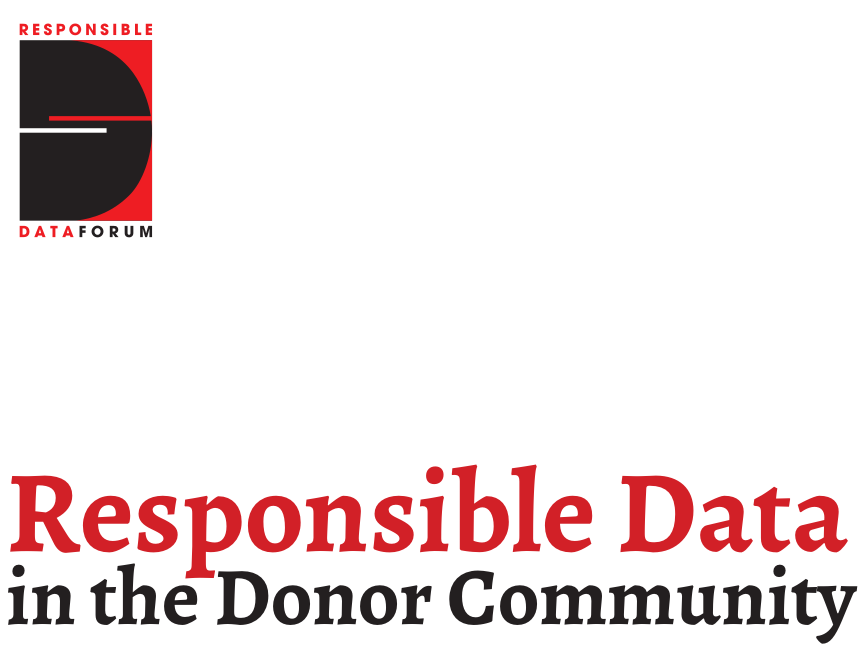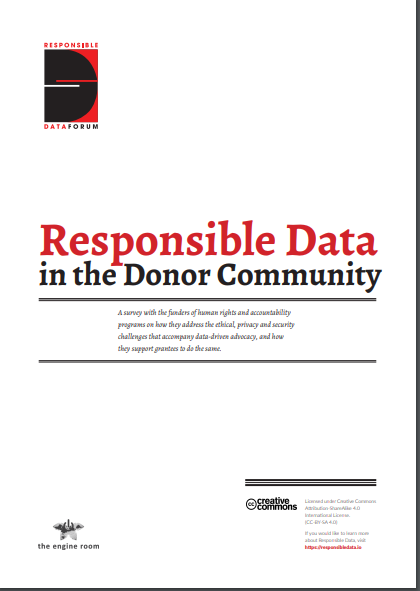Responsible data in the donor community

The first in-depth analysis of donors’ attitudes and policies regarding responsible data.
I led the write-up of the findings, coordinating with The Engine Room’s team to finalise the report.
Data is an increasingly important part of advocacy work. Intentionally or not, civil society, advocacy groups, activists, and human rights defenders are generating and dealing with a lot of it.
This occurs through explicit data collection (such as surveys and mappings); and data automatically generated through record-keeping and everyday communications. Donors also receive, generate and maintain a tremendous amount of data about their grantees and their grantees’ constituents.
And while data and communication tools can strengthen advocacy work, they can also put communities and activists at risk if not managed carefully, endangering the goals and communities advocates seek to support.
This report
This report is based on a series of interviews with 28 people representing 14 grant-making organizations on how they use data in their work.
It presents donors’ perspectives on usage, and makes proposals for next steps.
Limitations
This research represents a preliminary effort to understand what role the funding community could play to support more responsible data practices among their grantees and, more generally, to contribute to safer and more efficient programming. Subsequent collaboration with the donor community and other international groups have informed analysis of these interviews, which were conducted in 2013 and 2014. Significant developments in awareness and resources that have taken place since the interviews were conducted, and some interviewees emphasised that funders have since begun to build their capacity and have more frequent, open discussions on the subject.
Nevertheless, we believe that the issues raised in the interviews could provide a useful starting point for considering donors’ roles and responsibilities in managing data and promoting responsible data practices – and suggesting ways to continue improvements.
